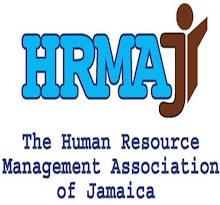
While some types of crises can be anticipated, the very nature of a crisis is to be unexpected. A comprehensive crisis communication plan with clearly defined steps should be a staple at every organization. This plan should inform whoever reads it. HR Managers must ensure that employees are aware of the dos and don’ts of responding to a crisis both internally and externally. An updated contact list of all employees should also be readily available.
During a crisis everyone within the organization must speak with the same voice, echoing the stance of the leadership to ensure that the media is given no loophole to extend the shelf life of the crisis. This is not limited to traditional media (radio, print and television) but also to social media. It is not possible to monitor the social networks of all the employees in a company however, it must be stressed that speaking of the crisis on personal sites can impact the situation and should be avoided. All it takes for the crisis to elevate is a snide comment about who caused the crisis to be discovered on a personal blog. One way of preventing this is by ensuring that the employees are informed of the crisis via the organization rather than through the media.
Communication is vital to this stage of crisis management. Face to face communication can help to reassure employees of management’s sincere interest in their wellbeing. It can also help to alleviate any concerns or aid in coping with the situation if it is emotionally stressful.
The terrorist attacks of 9/11, the March 11 Tsunami and earthquake that devastated Japan, the presidential scandal that rocked the IMF, they have all proven Murphy’s law- anything that can go wrong, will go wrong. There several types of responses to crises which must also be considered by management prior to the occurrence of a crisis in order for provisions to be made. Trauma can induce physical, emotional, cognitive and behavioural responses, factors which can affect the level of productivity during and after a crisis. It is the responsibility of HR to ensure that employees return to work as well as manage the balance between productivity and personal needs for those who cannot yet work due to trauma.
The role of HR is paramount to the success of an organization’s response to a crisis, as are the employees. They are perchance the most important player or stakeholder in a crisis and can reverse the efforts taken to manage the crisis if significant value is not placed on internal communication.
Do you think there is a culture of preparedness in Jamaica on a whole as well as in your organization?
What measures would you advise in order to create this culture?
What more do you think HR can do in the midst of a crisis?
Join in the discussion and tell us where you stand. It begins with us, it begins right here.
The Human Resource Management Association of Jamaica








